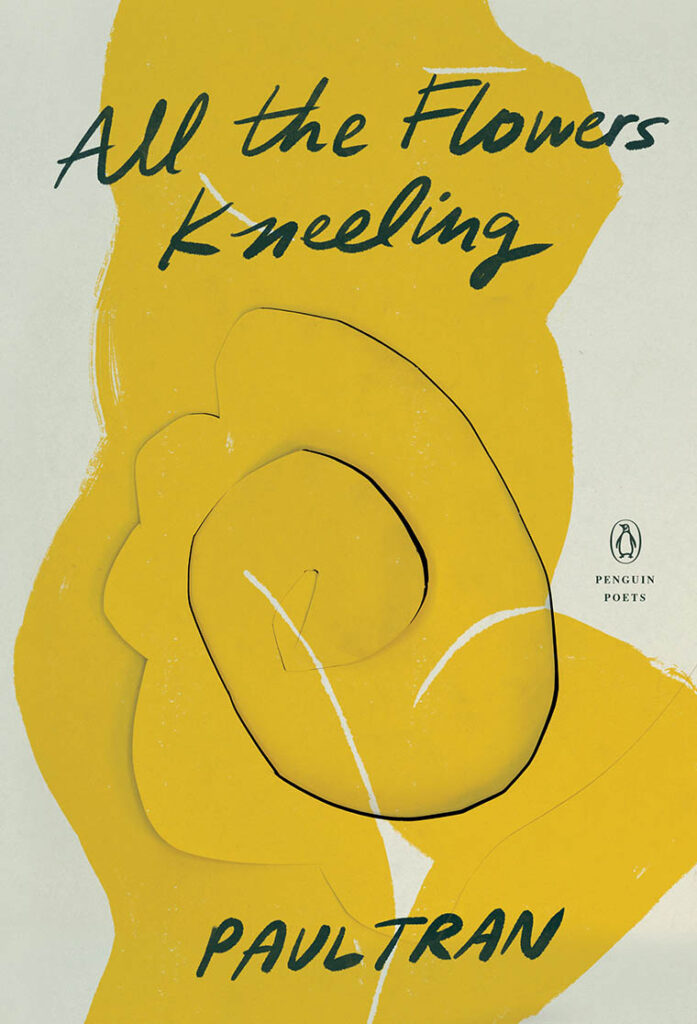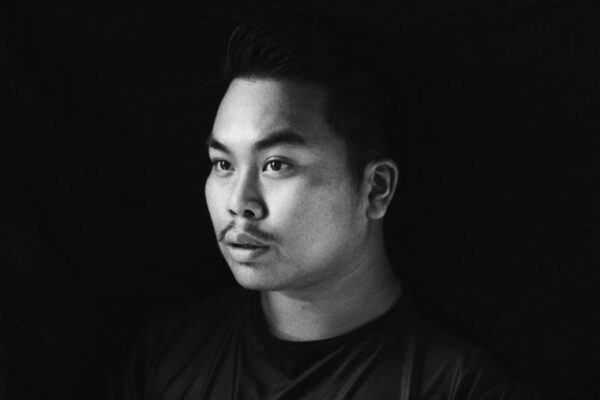“There are two journeys in writing a poem,” says Paul Tran, MFA ’19. “There’s the journey of actually writing it — the drafting that is the arena of capaciousness, the arena of imagination, innovation, reinvention.”
The second, according to Tran: revision, when the reaI work is done, and in their case, where the magic happens. “It’s where a poem gets made,” Tran says, “where it is given form, intention, and where we consider what its impact might be in the hands of another.”

In the hands of this reader, the impact of All the Flowers Kneeling (Penguin Books, 2022) is complete, blunt and transformative. It’s the debut collection for Tran, who is now the Wallace Stegner Fellow in Poetry at Stanford University but who had already made an impression on the WashU community in 2019, when they were selected by Chancellor Andrew Martin to write and read a poem at his 2019 installation. Tran maintains close ties to WashU through the annual Summer Writers Institute, where they will teach a three-week poetry class this summer called “Autobiography & Poetry: Revenge on Circumstance.”
The 28 poems that make up All the Flowers Kneeling examine everything from U.S. imperialism to intergenerational trauma to surviving sexual assault. “A balm for survivors everywhere,” one reviewer wrote, “while forging a bright path of resilience and healing.”
That path begins early in the collection with “Incident Report,” which not only shines brutal honesty on an emotionally jarring event of Tran’s young life but also illuminates why sexual assault is underreported in this country — more than any news report can. Or as Tran says, an example of poetry “intervening in bureaucracy.”
The poems take the reader on a journey, writes Carl Phillips, professor of English in Arts & Sciences and one of Tran’s MFA advisers and mentors, a journey that moves “past bewilderment, to knowing, to finally, the mystery of unknowing, where history falls away, where — bravely stripped equally of regret and apology — the life we get to choose for ourselves begins.”
Phillips, along with Mary Jo Bang, professor of English, and francine j. harris, who was a writer-in-residence at WashU, played instrumental roles for Tran, who studied as a Chancellor’s Graduate Fellow. “It was the first time I had an educational experience with people who not only understood who I was but where I came from — because they had lived it too,” Tran says of his time at WashU.
“They cultivated for me, a space that challenged me to unyoke myself from all the lies and unlearn the ways I had been moving through the world. They made me more honest because they could tell I was writing poems that were not true.”
Paul Tran, on the WashU faculty
Through the poems of All the Flowers Kneeling, Tran has chosen his path, and we as readers not only are accompanying them on their journey, but we also are changed by it. “It’s my hope that it facilitates not only the changing of oneself and one’s mind, but also the building of a community and family for the readers as it has for me.
“I believe in the power of art to change lives,” Tran says. “I have to be transformed by the time I finish a poem; I must have learned something new about myself and the world, about how I live and move through the world.”
Tran says that if they, as the poet, do their job, then a poem has the ability to call the community of readers to each other. “It’s my hope that this book facilitates not only the changing of oneself and one’s mind, but also the building of a community and family, as much for the readers as it has for me.”
In April 2021, Tran helped WashU celebrate Poetry Month with a reading of “Copernicus.” The poem was first published in The New Yorker and is among the collection of poems in All the Flowers Kneeling.


